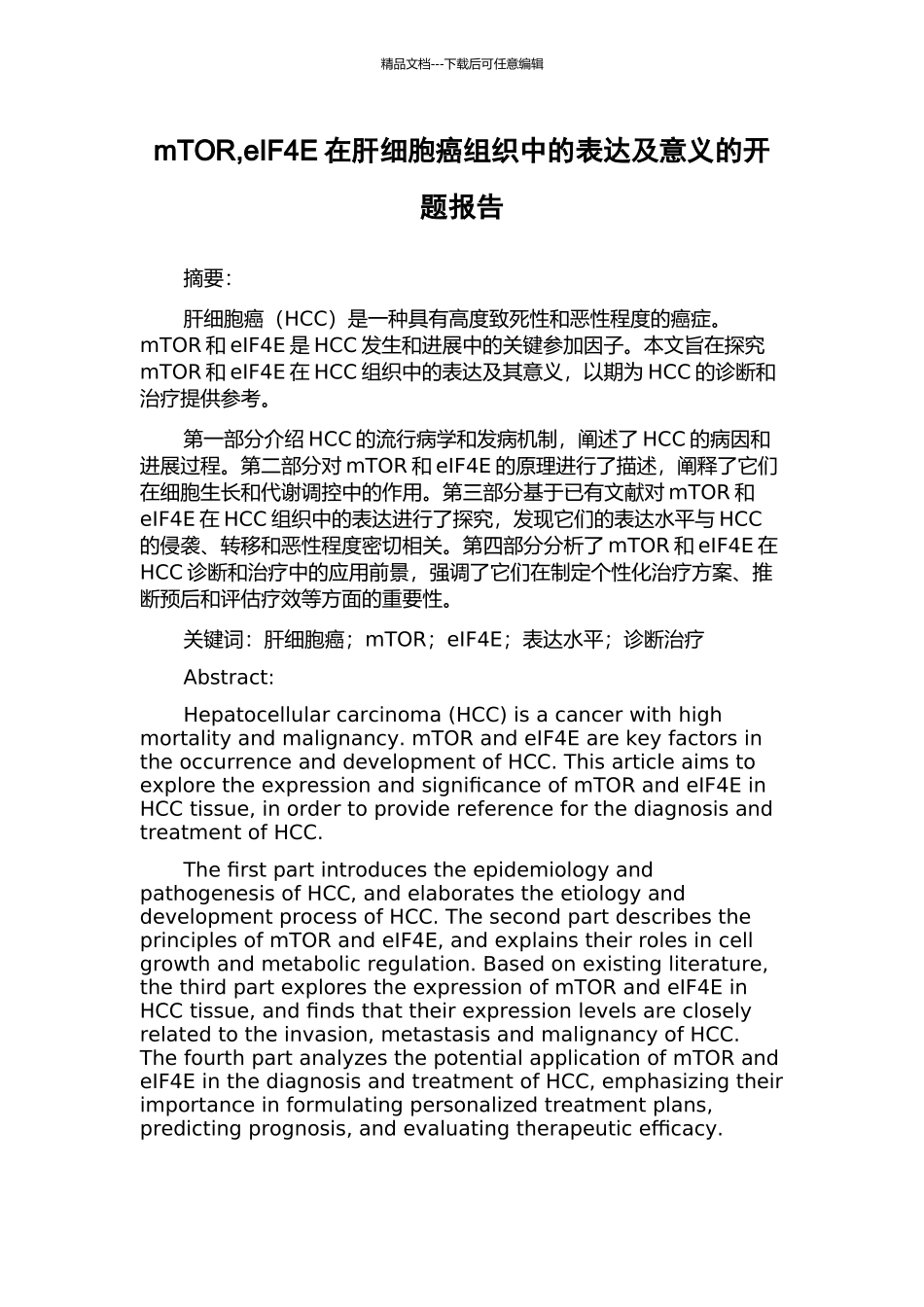精品文档---下载后可任意编辑mTOR,eIF4E 在肝细胞癌组织中的表达及意义的开题报告摘要:肝细胞癌(HCC)是一种具有高度致死性和恶性程度的癌症。mTOR 和 eIF4E 是 HCC 发生和进展中的关键参加因子。本文旨在探究mTOR 和 eIF4E 在 HCC 组织中的表达及其意义,以期为 HCC 的诊断和治疗提供参考。第一部分介绍 HCC 的流行病学和发病机制,阐述了 HCC 的病因和进展过程。第二部分对 mTOR 和 eIF4E 的原理进行了描述,阐释了它们在细胞生长和代谢调控中的作用。第三部分基于已有文献对 mTOR 和eIF4E 在 HCC 组织中的表达进行了探究,发现它们的表达水平与 HCC的侵袭、转移和恶性程度密切相关。第四部分分析了 mTOR 和 eIF4E 在HCC 诊断和治疗中的应用前景,强调了它们在制定个性化治疗方案、推断预后和评估疗效等方面的重要性。关键词:肝细胞癌;mTOR;eIF4E;表达水平;诊断治疗Abstract:Hepatocellular carcinoma (HCC) is a cancer with high mortality and malignancy. mTOR and eIF4E are key factors in the occurrence and development of HCC. This article aims to explore the expression and significance of mTOR and eIF4E in HCC tissue, in order to provide reference for the diagnosis and treatment of HCC.The first part introduces the epidemiology and pathogenesis of HCC, and elaborates the etiology and development process of HCC. The second part describes the principles of mTOR and eIF4E, and explains their roles in cell growth and metabolic regulation. Based on existing literature, the third part explores the expression of mTOR and eIF4E in HCC tissue, and finds that their expression levels are closely related to the invasion, metastasis and malignancy of HCC. The fourth part analyzes the potential application of mTOR and eIF4E in the diagnosis and treatment of HCC, emphasizing their importance in formulating personalized treatment plans, predicting prognosis, and evaluating therapeutic efficacy.精品文档---下载后可任意编辑Keywords: Hepatocellular carcinoma; mTOR; eIF4E; expression level; diagnosis and treatment.

